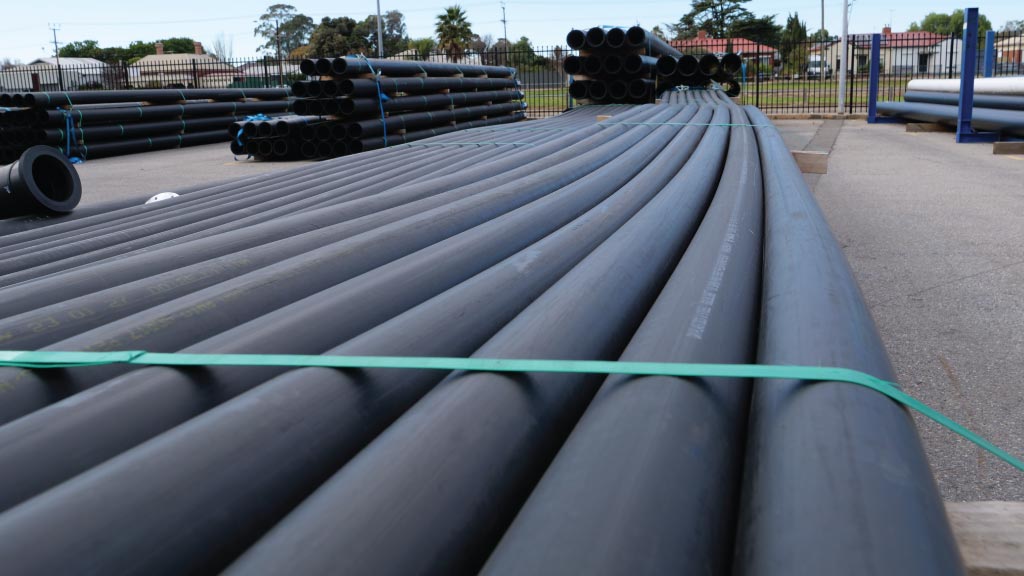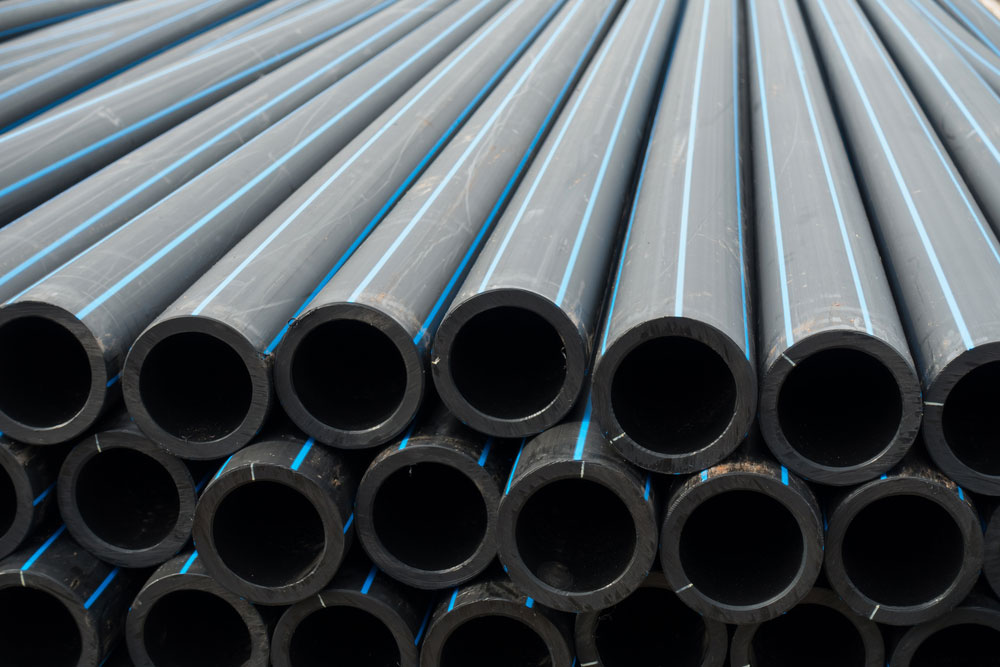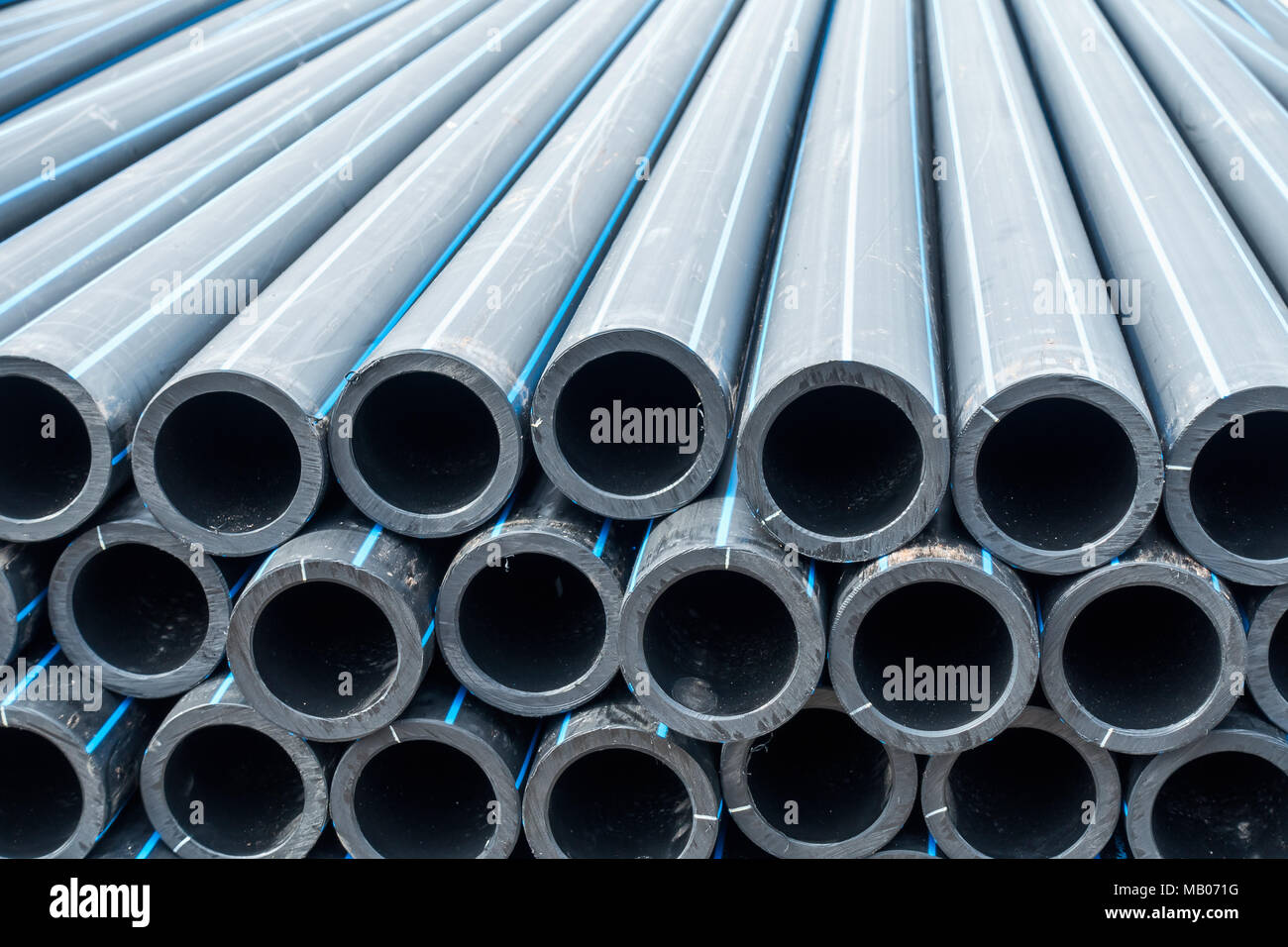Pipeline Manufacturer innovations: advanced practices shaping infrastructure
Wiki Article
Pipeline Manufacturer Spotlight: Discover the most effective in the Industry for Your Next Task
In the domain of pipeline manufacturing, the option of manufacturer can significantly influence the result of your task. With a selection of firms offering sophisticated products and innovative remedies, recognizing the crucial standards for choice becomes important. Sector leaders like Tenaris, Vallourec, and U.S. Steel go to the leading edge of offering trusted and lasting options. Nonetheless, the question remains: what certain variables should direct your decision-making procedure, and exactly how do these makers distinguish themselves in an increasingly competitive market? Discovering these elements might reveal understandings that can influence your following task's success.Sector Review
In the pipeline manufacturing sector, there exists a dynamic interplay of technical improvements and governing needs that shapes sector practices. This industry is vital for the transport of oil, gas, water, and other fluids, necessitating a robust understanding of both product residential properties and ecological impacts. Manufacturers are increasingly incorporating advanced materials and innovative manufacturing strategies to improve the resilience and effectiveness of pipelines, ensuring they can hold up against varying stress and ecological conditions.
On top of that, the rise of electronic technologies has actually changed typical manufacturing processes, allowing for improved tracking and anticipating upkeep. This shift not only enhances operational performance but additionally aids in minimizing potential failures prior to they intensify right into essential problems. Overall, the landscape of pipeline manufacturing is characterized by a continuous evolution driven by innovation and conformity, placing the field for future growth and sustainability.
Secret Criteria for Option
Choosing the ideal pipeline maker involves mindful consideration of several essential standards that guarantee dependability, performance, and conformity with sector criteria. Evaluate the manufacturer's experience and online reputation within the market. A reputable firm with a proven record is more probable to supply high-quality product or services.Next off, examine the variety of materials and specs supplied. Manufacturers ought to give a selection of options that provide to varied task requirements, consisting of various pipeline dimensions, products, and layer systems. Compliance with relevant market requirements, such as ASTM or API, is important, as it ensures the items fulfill safety and efficiency standards.
Additionally, think about the supplier's technical capacities. Advanced production strategies and high quality control measures can greatly affect the sturdiness and performance of the pipelines. Customer support and assistance are also vital; a receptive and well-informed team can promote smoother project implementation and resolve any type of concerns promptly.
Lastly, assess prices frameworks and preparation. While cost-effectiveness is necessary, it needs to not compromise quality. Balancing these requirements will certainly bring about a well-informed decision that lines up with task objectives and regulative demands.
Top Pipeline Manufacturers
In the competitive landscape of pipeline manufacturing, several market leaders stand out for their innovative technologies and commitment to sustainability. These leading suppliers not only master providing premium items but additionally focus on eco liable practices in their procedures. A review of their contributions offers valuable understandings into the future of pipeline remedies.Sector Leaders Overview
How do market leaders shape the pipeline manufacturing landscape? The top pipeline suppliers play a vital role in establishing industry requirements, driving technology, and ensuring high quality assurance throughout the supply chain. Firms such as Tenaris, Vallourec, and U.S. Steel have established standards for performance, security, and sustainability, influencing not simply their procedures yet additionally their rivals.These leaders spend substantially in research and growth to boost item durability and efficiency. Their commitment to sticking to governing conformity and worldwide requirements fosters consumer count on and encourages industry-wide fostering of ideal methods. Additionally, they commonly team up with stakeholders, including engineers and construction companies, to ensure that their products meet specific task demands and environmental factors to consider.
Market leaders additionally prioritize customer partnerships, using tailored remedies and remarkable solution, which enhances their market placement. By leveraging economic situations of scale, they can supply competitive pricing without endangering high quality. Inevitably, the influence of these suppliers extends beyond their items; they shape the future of pipeline innovation and manufacturing processes, ensuring a resilient and lasting infrastructure for numerous industries worldwide.
Ingenious Technologies Used
What ingenious technologies are transforming the pipeline manufacturing sector? In the last few years, top pipeline makers have accepted innovative technologies to improve efficiency, dependability, and safety and security in their operations. One considerable growth is the integration of smart pipeline tracking systems, making use of Internet of Things (IoT) sensing units. These systems give real-time information on pipeline problems, allowing proactive upkeep and decreasing the danger of leakages or failings.
Additionally, producers are progressively taking on advanced materials, such as composite pipes, which use boosted resilience and resistance to rust. These products not just expand the life-span of pipes yet additionally decrease functional expenses gradually. Additive manufacturing, or 3D printing, is revolutionizing the manufacturing process. This innovation enables fast prototyping and modification of elements, enhancing supply chains and decreasing waste.
Fabricated intelligence (AI) and artificial intelligence formulas are also obtaining grip, optimizing design processes and anticipating maintenance timetables. By examining vast datasets, these modern technologies aid identify possible issues before they emerge, boosting security and operational efficiency. As these ingenious technologies proceed to develop, they promise to form the future of pipeline manufacturing, making sure that jobs can be completed promptly and within spending plan while preserving the utmost safety and security requirements.
Sustainability Practices Highlighted
The ongoing advancements in cutting-edge modern technologies within the pipeline manufacturing industry are enhanced by a growing focus on sustainability methods among leading producers. These companies are progressively adopting eco-friendly approaches, minimizing waste, and minimizing their carbon impacts throughout the production process.Leading manufacturers are focusing on making use of recycled products, enhancing the lifecycle of their products. By applying closed-loop systems, they effectively make use of resources, therefore decreasing the ecological impact connected with resources removal and processing. In addition, several companies are investing in renewable resource sources to power their operations, further reducing greenhouse gas exhausts.
In addition, pipeline producers are accepting advanced finishes and materials that improve rust resistance and long life, which ultimately reduces the regularity of substitutes and repair work. These sustainable methods not only contribute to ecological stewardship however additionally line up with the growing governing demands and market assumptions for responsible manufacturing.
Moreover, cooperation with stakeholders to cultivate sustainability campaigns showcases a dedication to a greener future. By concentrating on lasting methods, leading pipeline makers are not just enhancing their functional performance yet additionally establishing a criteria for industry standards, advertising an extra lasting pipeline facilities for all.
Ingenious Technologies
The pipeline sector is observing a transformative change with the integration of innovative technologies, specifically in advanced materials growth and clever pipeline tracking systems. These improvements not only enhance the sturdiness and effectiveness of pipelines yet likewise improve safety and ecological stewardship. As makers accept these advanced solutions, the future of pipeline framework looks progressively appealing.Advanced Materials Development
Advancements in sophisticated products advancement are transforming the pipeline manufacturing industry, driving improvements in efficiency, efficiency, and toughness. The appearance of high-strength alloys and composite products has enabled the production of pipelines that can withstand severe conditions, consisting of high pressure and destructive settings. These materials not just extend the life-span of pipelines yet also minimize upkeep costs, eventually bring about improved functional performance.
Improvements in polymer scientific research have actually led to the production of lightweight, versatile piping systems that are less complicated to mount and transport. These developments add to decrease carbon impacts in pipeline tasks, straightening with worldwide sustainability objectives. Furthermore, the assimilation of nanotechnology in product advancement is opening new avenues for enhancing the mechanical buildings of typical products, causing pipes that can endure greater stress while maintaining honesty.
As suppliers remain to buy r & d, the pipeline market is seeing an extraordinary advancement in material capacities. This concentrate on innovative products not only sustains the growing need for trustworthy infrastructure however additionally cultivates an affordable landscape in which business can separate themselves through superior item offerings. The future of pipeline manufacturing is certainly intertwined with these groundbreaking developments.
Smart Pipeline Keeping Track Of Systems
Smart pipeline tracking systems are transforming the landscape of pipeline management by integrating cutting-edge modern technologies such as IoT sensors, expert system, and real-time information analytics. HDPE Pipe Supplier. These systems make it possible for drivers to keep track of the honesty and efficiency of pipes continually, substantially decreasing the threat of failures and leakagesWith the release of IoT sensors along pipeline paths, drivers collect vital data on stress, temperature, and flow prices. This information is transferred in real-time to centralized monitoring systems, enabling for prompt assessment and action to anomalies. Advanced man-made knowledge algorithms evaluate this information to identify patterns, anticipate prospective concerns, and suggest preventative steps prior to they intensify right into costly troubles.
The execution of clever monitoring systems not only improves operational effectiveness but additionally fosters compliance with regulatory standards. By offering in-depth reports and understandings, these technologies sustain far better decision-making and threat administration. In addition, the assimilation of machine understanding capacities enables systems to enhance gradually, adapting to transforming conditions and improving anticipating accuracy.
As the market continues to embrace these innovations, smart pipeline tracking systems are positioned to play a pivotal duty in ensuring the safety, dependability, and sustainability of pipeline facilities. HDPE Pipe Supplier.

Study of Success
Success stories within the pipeline manufacturing market light up the effectiveness of cutting-edge remedies and collaboration among stakeholders. One notable case is the partnership between a leading supplier and an oil company to carry out a modern wise pipeline monitoring system. The task considerably lowered leak detection times and enhanced operational effectiveness, showcasing the worth of innovative innovation in improving safety and security and lowering costs.Another instance includes a manufacturer that effectively incorporated sustainable products into their pipeline building. By collaborating with study institutions, they established a composite product that is not only long lasting however also eco-friendly. This development not only fulfilled regulatory requirements however also drew in brand-new clients looking for lasting solutions.
A pipe job in a difficult geographical area showed the relevance of flexible design techniques. The supplier teamed up with regional engineers to create a pipe that can withstand extreme climate condition, ultimately stopping service disturbances and ensuring integrity for end-users.
These study exemplify just how critical collaborations, technical advancements, and adaptive remedies in the pipeline manufacturing field bring about effective task results, consequently strengthening the industry's dedication to supplying high-quality infrastructure while dealing with client requires successfully.
Sustainability Practices
As the pipeline manufacturing sector progresses, the integration of sustainability techniques has come to be progressively important. Manufacturers are taking on environmentally friendly materials and processes to minimize their environmental influence while preserving high criteria of high quality and safety and security. This shift is driven by both governing requirements and an expanding awareness of environmental duty among stakeholders.
One famous approach is using recycled products in pipeline production, which minimizes the demand for virgin resources and lowers waste. Firms are also spending in energy-efficient manufacturing techniques, thus decreasing their carbon footprint during manufacturing. In addition, many makers have actually taken on water conservation methods, making certain that water usage is reduced and wastewater is dealt with properly.
In addition, lasting transport approaches are being made use of to supply materials, including enhancing logistics to lower emissions. The commitment to lifecycle assessments allows producers to examine the ecological effect of their items from beginning to disposal, advertising not just sustainability however also long-term financial practicality.
Eventually, the adoption of sustainability methods Click Here in pipeline manufacturing symbolizes a crucial action toward lining up sector procedures with worldwide environmental goals, guaranteeing that future projects are both innovative and accountable - American Plastics LLC HDPE Pipeline Manufacturer. - HDPE Pipe Supplier
Future Fads in Pipeline Manufacturing
What innovations are on the horizon for pipeline manufacturing? As the industry evolves, several key trends are forming the future of pipeline manufacturing. Initially, the combination of sophisticated materials such as composite pipes promises boosted durability and resistance to deterioration, therefore prolonging the life expectancy of pipelines. These materials not just lower maintenance costs yet likewise improve safety and security criteria.

Sustainability stays a critical focus, with makers significantly prioritizing eco-friendly methods. The growth of naturally degradable materials and the application of reusing programs are obtaining traction, lining up with worldwide ecological objectives.
Regularly Asked Questions
What Materials Are Typically Utilized in Pipeline Manufacturing?
Common materials used in pipeline manufacturing include carbon steel, stainless steel, polyethylene, and ductile iron (American Plastics LLC HDPE Pipeline Manufacturer). Each product uses distinct advantages concerning stamina, deterioration resistance, and viability for numerous applications within the pipeline sectorFor how long Does the Pipeline Manufacturing Refine Generally Take?
The pipeline manufacturing process usually varies from a couple of weeks to numerous months, depending upon variables such as material choice, production capability, and personalization demands. Effective planning and sychronisation can considerably affect the total timeline.What Are one of the most Usual Pipeline Sizes Available?
One of the most typical pipeline dimensions range from 2 inches to 48 inches in diameter. Variability exists based on certain applications, sector requirements, and regional demands, guaranteeing flexibility to meet varied task demands and operational needs.Are There Service Warranties Supplied on Pipeline Products?
Yes, several pipeline makers provide warranties on their products, generally covering material flaws and handiwork. The period and terms of these service warranties vary by supplier, so it is necessary to assess certain policies prior to acquisition.Exactly how Do I Guarantee Proper Installment of Pipelines?
To guarantee correct setup of pipes, comply with industry criteria, use qualified experts, conduct thorough website assessments, carry out quality assurance measures, and safe compliance with laws. Routine examinations and maintenance better improve pipeline performance and longevity.Pipeline suppliers are accepting advanced coatings and materials that boost rust resistance and long life, which eventually lowers the frequency of substitutes and fixings. The pipeline market is observing a transformative shift via the combination of cutting-edge technologies, especially in innovative materials advancement and clever pipeline monitoring systems. As producers proceed to invest in research study and growth, the pipeline industry is seeing an extraordinary evolution in material abilities. Smart pipeline tracking systems are transforming the landscape of pipeline administration by incorporating cutting-edge technologies such as IoT sensors, man-made knowledge, and real-time information analytics. Yes, numerous pipeline suppliers supply warranties on their products, usually covering product flaws and handiwork.
Report this wiki page